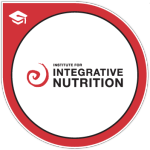
Polycystic Ovarian Syndrome, PCOS, is one of the most common conditions affecting women of childbearing age. If you are one of these women, you are not alone. There is so much you can do to change your lifestyle and manage your condition.
The general symptoms of PCOS include irregular periods, missing cycles, weight gain, hirsutism (hair in the face, chest, back, and buttocks), loss of scalp hair, acne and abdominal obesity. However, if you are suffering from PCOS, it doesn't mean that you will have all these symptoms. You don’t have to be overweight to suffer from PCOS. Some women have normal insulin sensitivity and are still diagnosed with PCOS. Even the polycystic ovaries - which are highlighted in the name of the condition - are not a necessary manifestation of the condition. It is a combination of metabolic, adrenal, pituitary, hypothalamic and ovarian dysfunction and is often more complicated than a list of symptoms. The symptoms are different for everyone.
This is one of the conditions that is highly affected by diet and lifestyle factors like exercise and stress. Changing your lifestyle can have a great benefit if you suffer from this condition.
Insulin resistance and PCOS
Most women who suffer from PCOS also have insulin resistance. When you have insulin resistance, insulin levels rise in the blood. High insulin affects ovulation and increases the secretion of testosterone from the ovaries. This creates an imbalance that leads to symptoms like weight gain, acne, hirsutism, weight gain, mood swings and lack of periods. Some women have it the opposite way: elevated androgens (male sex hormones) happens first and then insulin resistance. Some women do not develop insulin resistance at all, as I mentioned before. This confirms that insulin resistance is not necessarily a causing factor in PCOS. It is associated with most women who suffer from PCOS, but is not the direct causing factor as once believed.
Adrenal PCOS
Emotional stress is notorious for causing the total loss of your period. Stress due to vigorous exercise can cause the same thing. Stress stimulates the pituitary gland to produce ACTH (adrenocorticotropic hormone), which stimulates the adrenal glands behind your kidneys to produce cortisol, adrenaline, and noradrenaline. ACTH also stimulates the adrenals to produce male sex hormones: DHEA*, DHEA-S**, and androstenedione. The purpose of the release of these hormones is to protect the brain against the detrimental effect of chronic exposure to the stress hormones cortisol and adrenaline. It is clear now how stress can contribute to the most common manifestations of PCOS: unwanted hair growth, menstrual dysfunction, mood disorders, and acne.
*DHEA: dehydroepiandrosterone
**DHEA-S: dehydroepiandrosterone sulfate (DHEA-S)
Lifestyle modification for PCOS
Food
The glycemic index is the ability of a certain food to raise blood sugar. A diet for PCOS should be low in the Glycemic Index (GI). Refined carbohydrates and sugars have the ability to raise the blood sugar very quickly which leads to a spike in insulin. This means they have a high GI.
Always choose real food over processed food. Legumes, fruits, and vegetables still have carbs. However, they also contain fibers to slow down the absorption of these carbs and this means that they have a lower glycemic index. Some natural foods have a higher glycemic index than others (potatoes, corn, bananas, dates and tropical fruits). In that case, to enjoy these foods combine them with a protein/fat-rich food like nuts, olive oil, sesame paste or avocados. Avocados are also known for their positive effects on fertility. Legumes are high in inositol, which is very helpful for PCOS (see the supplement section). Sesame seeds improve the hormonal profile in women with PCOS. One study found that 50 gms of sesame seeds per day for 5 weeks significantly reduced androgen levels in PCOS patients. 1-2 tablespoons of tahini paste or 1/4 cup of sesame seeds are enough per day to induce these positive effects.
There are many vegetables and fruits that naturally have a low GI. Zucchini, asparagus, carrots, broccoli, cauliflower, celery, apples, berries, kiwi, plums and even oranges and grapes have a GI in the lower range. Whole grains like brown rice, millet and buckwheat are certainly a better choice than refined grains. Fish, poultry, and meat are good sources of proteins as long as you choose the source carefully and not overdo it. It's preferable to take more protein from vegetable sources like legumes in PCOS. High protein diets may negatively affect PCOS because they can still increase insulin release.
Fructose is also an important factor in the PCOS diet. A normal amount of fructose from fruits is processed in the body in a very different way than a high amount of fructose from desserts, high-sugar beverages, or even fruit juice. Reduce the amount of fructose in your diet. When a big amount of fructose is ingested, it goes straight to the liver where it induces inflammation and impairs insulin sensitivity.
In summary, eat real foods, choose the highly nutritious ones, and opt for a lower glycemic index. Make sure you eat a balanced diet that includes fiber, good fats, and proteins in every meal.
Supplements
Many supplements have been studied for the support of PCOS. The choice of supplements depends on the type of PCOS you suffer from, symptoms, and goals. Some supplements support ovulation and pregnancy, if that’s your goal. Others improve insulin sensitivity and reduce insulin resistance in combination with diet and lifestyle modifications. It’s important to work with your healthcare practitioner to decide the best supplements for your body.
Correction of deficiencies
Magnesium, zinc, calcium, chromium and vitamin D are all important for normal cellular function and hormone production. Correction of these deficiencies has shown to be very helpful while treating PCOS.
Inositol
There are two types: Myo-inositol and D-Chiro-inositol. Inositol is found in fruits, beans, and buckwheat. Both MYO and DCI work as secondary messengers to regulate hormones like *FSH, **TSH and Insulin. Women with PCOS have a defect in their ability to use inositol properly. This could be the reason why they have higher insulin levels. Improvement of insulin sensitivity, reduction of testosterone, improvement of ovulation are all effects seen after the correction of inositol level.
*Follicle Stimulating Hormone
**Thyroid Stimulating Hormone
Berberine
This is one of the most studied supplements. It has been compared to Metformin, the active ingredient in Glucophage, and found at least as effective. It does not carry the side effects associated with Metformin, like vitamin B12 deficiency and gastrointestinal symptoms. However, long-term treatment with Berberine may disrupt the microbiome because it is a natural antibiotic. Berberine was shown to be effective at reducing insulin resistance and improving menstrual cycle regularity and ovulation. The effective dose is 400 mg 3 times daily for 4 months.
N-Acetyl Cysteine
Fights oxidative stress and inflammation. It protects insulin receptors and influences insulin receptor activity and insulin secretion from pancreatic cells. It also improves pregnancy rates and ovulation when compared to a placebo. Dose: 1.6-3 g daily. The usual dose is 600 mg, 3 times daily for 24 weeks.
Cinnamon
When used regularly as a supplement, it improves menstrual regularity and insulin resistance. Suggested dose: 500 mg, 3 times daily for 6 months.
Curcumin
In a recent rat study, curcumin was able to restore ovulation and reduce testosterone in PCOS induced rats. Curcumin is a powerful anti-inflammatory agent and could also be used to treat the chronic inflammation associated with most chronic diseases like PCOS. It’s also an antioxidant, increases detoxification, has a chemoprotective activity and is immunostimulatory. What more can you ask of one supplement? ;)
Stress
Exercise
Weight loss is an important key to treating PCOS. No one can deny the great benefits of exercise! It helps your metabolism, accelerates weight loss, boosts your immunity and even improves your mood. However, if your body is struggling with a complicated condition like PCOS, balance is very important. The effect of exercise should be replenishing and not depleting. If you exhaust your body with too much exercise, it could backfire and lead to the same stressful effect I mentioned earlier.
Sleep
Lack of sleep is one of the significant causes of stress on the body. According to this research report, published in 2011, sleeping less than 6 hours per day is associated with chronic inflammation, worsening of insulin resistance, and an increased risk for obesity, type 2 diabetes and cardiovascular disease. Sleep deprivation impairs the immune system, leads to cognitive decline, mental health and mood problems and increased risk of death!
If you suffer from sleep deprivation, look at how much time you spend on screens. The artificial light from screens can be mistaken by the body as sunlight and might disturb the natural hormonal rhythm. A small dose of light emitted from your alarm might suppress the level of melatonin, the hormone which regulates the wake-sleep cycle.
Read my tips for a better night's sleep.
| If you suffer from PCOS, and feel that you need professional one-on-one help, don't hesitate to contact me and schedule your health breakthrough consultation session. |


